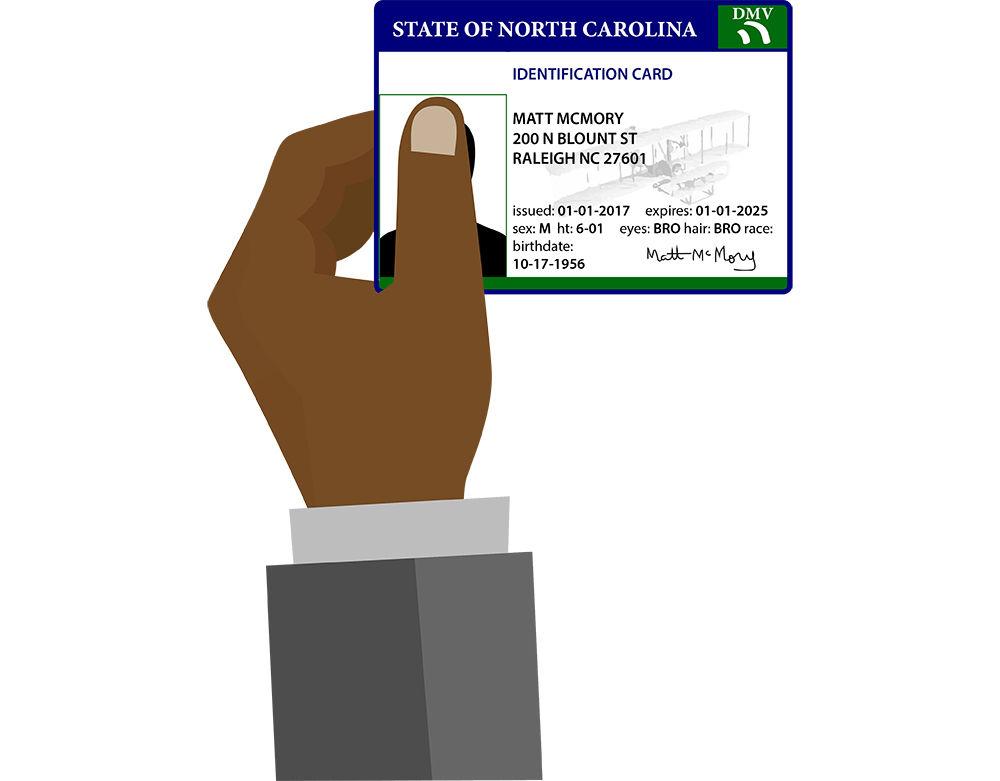
Graphic by Sorena Dadgar
The U.S. Supreme Court announced on Monday that it will not review the decision of a lower federal court to strike down a strict North Carolina voter ID law for targeting African-Americans, rejecting the Republican legislators’ appeal to reinstate the law.
In February of this year, Gov. Roy Cooper and Attorney General Josh Stein attempted to withdraw the appeal, which was filed while Republican Pat McCrory was governor.
The voter ID law was enacted in 2013 following the Supreme Court’s 2013 decision striking down a section of the Voting Rights Act that removed federal government oversight of states with a history of discrimination. The law, since then, has been challenged by many for allegedly violating the 15th Amendment to the U.S. Constitution, which states that voting rights of citizens of United States “shall not be denied or abridged by the United States or by any State on account of race, color, or previous condition of servitude.”
In a statement released Monday by Cooper, he affirmed his support of the Supreme Court’s decision.
“Today’s announcement is good news for North Carolina voters,” Cooper said in the statement. “We need to be making it easier to vote, not harder — and the Court found this law sought to discriminate against African-American voters with ‘surgical precision.’”
The term “surgical precision” references the ruling of the 4th Circuit U.S. Court of Appeals, the court whose ruling in 2016 claimed that the law targeted black individuals with “almost surgical precision” and “discriminatory intent.”
The appeals court did not allow for the law to be used during the 2016 general election.
Among other measures, the law required voters to present an approved form of photo ID before casting a vote, reduced the early voting period and eliminated same-day registration and voting.
Stein, in a statement shared on his Facebook page, applauded the Supreme Court’s decision and described it as a “victory.”
“The right to vote is our most fundamental right,” Stein said in the statement. “It’s how we hold government and our elected officials accountable. I will fight to protect the right to vote for all North Carolinians.”
As its custom, the Supreme Court did not supply a reasoning for denying to review the lower court’s decision, but in the disposition for the ruling, Chief Justice John Roberts said that the court’s denial to hear the appeal “imports no expression of impression on the merits of the case.”
Last August, Roberts and the court’s other Republican-nominated justices — Anthony Kennedy, Samuel Alito and Clarence Thomas — voted to allow the law to be used in the 2016 elections while the appeals process continued, but were unable to find a fifth vote from the court’s four Democratic-nominated justices.
Republican lawmakers highlighted Roberts’ statement that the court was not basing their decision on the merits of the case.
In a joint statement between House Speaker Tim Moore and Senate Leader Phil Berger, the two said that “in light of Chief Justice Roberts’ statement that the ruling was not based on the merits of voter ID, all North Carolinians can rest assured that Republican legislators will continue fighting to protect the integrity of our elections by implementing the commonsense requirement to show a photo ID when we vote.”
In a statement released to the press and available on its website, the ACLU of North Carolina described the Supreme Court’s move to decline hearing of the case as a “victory for voting rights.”
Dale Ho, director of the ACLU’s Voting Rights Project, said that the law has met its “much-deserved demise.”
“An ugly chapter in voter suppression is finally closing,” Ho said.
Harrison Preddy, a junior studying political science and current chair of College Republicans, said he was disappointed that the Supreme Court chose not to review the decision of the lower court.
“Election integrity is one of the most important pillars of our democracy,” Preddy said. “It is unfortunate that the Supreme Court did not hear the laws in court, especially as the majority of North Carolinians voted for them. Voter ID laws would help to ensure that votes are cast by actual voters.”
An audit by the state Board of Elections officials last month found that a total of 508 ineligible voters cast ballots during the 2016 election, but the majority were from felons serving an active sentence. The audit confirmed 41 votes by noncitizens.
Allison Riggs, senior staff attorney with the Southern Coalition for Social Justice, is grateful for the Supreme Court’s decision regarding the voter ID law, and said in a press release that it has “no place in our democracy nor our elections.”
“This ruling sends a strong message that lawmakers in North Carolina should stop enacting laws that discriminate based on race,” Riggs said in the release.